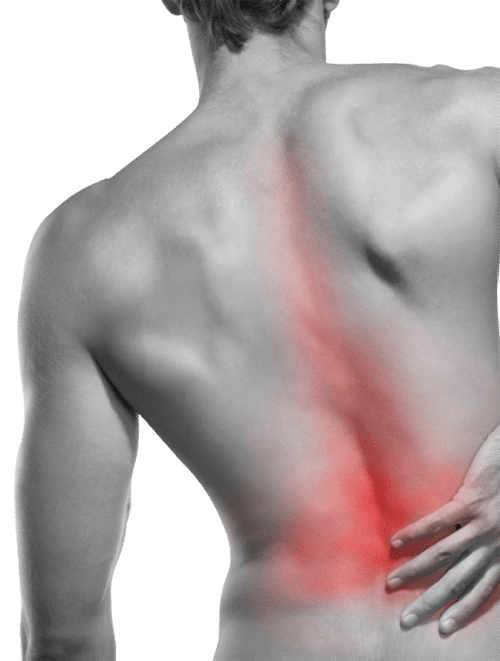When to go to the doctor for back pain?
Over 80% of all people experience lower back pain, middle back pain, upper back pain, acute back pain, or chronic back pain at some point in their lives. If you have lower back pain, numbness or tingling sensations, or other back pain symptoms, you may wonder if you should consult a back pain doctor. In many cases, back pain may resolve independently with rest and care, but some types necessitate medical attention.
When your back starts hurting, try taking over-the-counter pain medications, such as ibuprofen and aspirin, to alleviate discomfort. You can also apply ice to the affected area at brief intervals. You must also rest the affected area, elevate it above the heart’s level, and apply a compression bandage. These simple steps will resolve most forms of back pain, allowing you to gradually resume your daily activities. But, in some cases, you must contact a doctor for back pain.
You should contact a doctor for back pain in the following situations:
- Your back pain lasts for more than two weeks
- Your back pain prevents you from participating in daily activities
- You have severe back pain
- Your back pain is accompanied by fever
- Your back pain is accompanied by numbness and tingling sensations
- You have back pain after a serious injury or trauma
- You can’t control your bowel movements and bladder
- You can’t move your arms or legs properly
- You have unexplained weight loss
If you identify with any of the aforementioned statements, you must contact a doctor for back pain immediately. Our back centers in New Jersey are led by some of the country’s leading board-certified interventional pain management specialists. Our back pain doctors use cutting-edge technologies to diagnose the root cause of your back pain, following which they curate a personalized treatment plan consisting of minimally invasive procedures, such as rest, physical therapy, epidural injections, hyaluronic acid injections, etc.
You can find our back pain doctors in Clifton, Paramus, Woodland Park, or West Orange. If you have persistent or severe back pain, please schedule an appointment today.

Which doctor should I see for lower back pain?
Most people visit their primary care doctors when they experience lower back pain. While primary care doctors can provide non-steroidal anti-inflammatory medications to alleviate some discomfort, they’re not trained to diagnose and treat the root cause of lower back pain. If you have severe or persistent chronic back pain, you must contact highly skilled interventional pain management specialists.
Interventional pain management specialists have advanced training in minimally invasive treatments for back pain conditions. Instead of simply masking your symptoms, interventional pain management doctors diagnose and treat the root cause of your back pain using the latest and safest minimally invasive procedures. Your pain management doctor may also refer you to chiropractors or physical therapists to help you embark on a sustainable path to an active life.
Why does my back hurt when I turn?
Your back may hurt for numerous reasons, such as muscle pain, back spasms, joint pain, impinged nerve roots, disc problems, and much more. Acute back pain may happen because of injuries, overuse, and other factors, and they usually relieve within a few days. But chronic back pain gradually worsens with time, so you need to consult a reliable back pain doctor for diagnosis and treatment.
What symptoms associated with back pain should prompt you to see a doctor?
- Persistent back pain that lasts for several weeks or months
- Severe back pain that shoots down to the legs or other parts of the body
- Back pain accompanied by numbness, tingling sensations, and weakness
- Severe back pain after an injury or trauma
- Back pain that gradually worsens in certain positions or at certain times
- Back pain accompanied by the loss of bladder control
- Back pain accompanied by unexplained weight loss
- Back pain accompanied by fevers
What are the conditions that may have back pain as a symptom?
- Muscle and ligament sprains and strains
- Herniated discs
- Degenerative disc disease
- Osteoarthritis
- Osteoporosis
- Spinal stenosis
- Spondylolisthesis
- Vertebral fractures
- Scoliosis
- Spondylitis
- Rheumatoid arthritis
- Fibromyalgia
- Kidney infections
- Other medical conditions
What are the 3 categories of back pain?
- Acute Back Pain: Short-term back pain that lasts for up to 4 weeks.
- Subacute Back Pain: Mid-length back pain that lasts for 4 weeks to 12 weeks.
- Chronic Back Pain: Long-term back pain that lasts for more than 12 weeks.
Should I go to the doctor if I hurt my back?
You should definitely consult your back doctor if you have sustained a serious injury or trauma. Even if you don’t experience back pain as a result of your trauma right now, it’s still a good idea to get a checkup. Furthermore, if you have severe or persistent back pain that’s lasted for over a week, you should definitely contact your back pain doctor.
How do I know if I pulled a muscle or herniated disc?
Back pain in the mid-back is usually caused by muscle strains, though they can also be caused by disc problems. However, in most cases, disc herniation occurs on the lower back (lumbar) or neck (cervical) regions. If your back pain is caused by disc herniation, the symptoms will worsen when you bend forward or straighten up.





